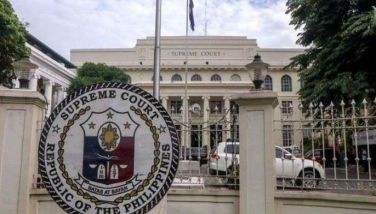EDITORIAL — Mental health and violence

School bullying was one of the reasons cited for the dismal performance of Filipino 15-year-old students in the two times that the country participated in the Program for International Student Assessment.
Apart from poor PISA and school performance, bullying and other mental health issues can lead to deadly violence. In recent months, violence involving students has disrupted classes in several schools. The latest erupted last Wednesday in a public school in Parañaque, where a 14-year-old eighth grader was stabbed dead by a male classmate, also age 14, who reportedly resented bullying.
Mental health assistance could have prevented that tragedy. Suicides among Filipino youths have also been on the rise. The country, however, has an acute lack of mental health professionals, from psychiatrists and psychologists to trained guidance counselors.
Earlier this month, two farmers in Nueva Ecija committed suicide, with another killing himself in January. While the National Bureau of Investigation has established that the suicides on March 12 and 18 and the first one in January were not linked to the fall in the farmgate prices of palay, despondency over other problems still drove the farmers to take their own lives. One was abandoned by his wife while the other despaired over his chronic illness, the NBI said.
In June 2018, Republic Act 11036 or the Mental Health Act was signed into law. Apart from aiming to eliminate the stigma attached to mental health issues, RA 11036 seeks to promote mental health care in workplaces, schools and at the community level.
Like most laws in this country, however, implementation of RA 11036 leaves much to be desired, both in terms of facilities and manpower. Mental health problems spiked during the COVID lockdowns, but the assistance promised by the law was barely in place. In many schools, teachers – even without proper training – double as guidance counselors and mental health care providers.
The wealthy have access to mental health services. As in most aspects of life in this country, mental health care is most inadequate for the underprivileged.
If RA 11036 would be fully implemented, there should be a significant increase in demand for mental health professionals. The government can amplify this need to encourage more youths to consider a career in mental health care. The recent tragedies should prod the government to give this problem urgent attention.
People with suicidal thoughts may call the crisis hotline numbers of the Natasha Goulbourn Foundation for help:
Information and Crisis Intervention Center: (02) 804-HOPE (4673)0917-558-HOPE (4673) or (632) 211-45500917-852-HOPE (4673) or (632) 964-68760917-842-HOPE (4673) or (632) 964-4084
In Touch Crisis Lines: 0917-572-HOPE or (632) 211-1305(02) 893-7606 (24/7)(02) 893-7603 (Mon-Fri, 9 am-5 pm)Globe (63917) 800.1123 or (632) 506.7314Sun (63922) 893.8944 or (632) 346.8776.
- Latest
- Trending





























